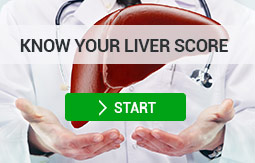We will walk you through how to best prepare for your appointment with your hepatologist to ensure you get the most out of it. We also cover off in this article, ten questions to ask your hematologist. It can be daunting but we are here to help you.
What’s in this article
- Seeing a Hepatologist
- Preparing for your appointment
- Ten questions to ask your Hepatologist
Seeing a Hepatologist
Whether you have been referred to a specialist or you have taken it upon yourself to visit one this signifies a concern regarding your liver health. It is important to be well prepared when going to your appointment so that you can get the most out of it and so that your doctor can help you to their best ability.
Preparing for your appointment
Make sure you know about any pre-appointment restrictions, for example, food restrictions on the day of/before your appointment – this information should be supplied to you before your appointment. Tell your doctor your symptoms, including when they started and how they may have changed or worsened over time and make a list of any medications that you are currently taking including vitamins and supplements. Report to them your eating and lifestyle habits including whether you smoke and drink alcohol. If you are unsure you can keep a diary for 1 to 2 weeks before your visit. Ensure you make your hepatologist aware of any pre-existing conditions that you have and bring along any medical test results that you have for example liver biopsy results, ultrasound images, MRI scans.
If you are nervous about going or feel you need some support then you can always bring a family member or friend along to the appointment. They may even be able to help you remember to tell your doctor all the vital information. It is also helpful to have someone else who can recall important answers the doctor gives you, just in case you forget later.
Ten questions to ask your Hepatologist
- What is the status of my liver damage?
- What has caused this damage?
- Is there a way to slow or stop my liver damage?
- What are my treatment options?
- What will be the consequences if left untreated?
- Should I be following a nutrition plan?
- What lifestyle changes will I need to make?
- Are there medications or supplements that can hurt my liver?
- What signs and symptoms of complications should I watch out for?
- I have existing health conditions; how can I best manage them together?
Learn about the basics of liver health with Dr. Tarek Hassanein, M.D.
References
mayoclinic.org
pbcers.org
www.liverdirectory.com

 (442) 244-5115
(442) 244-5115















